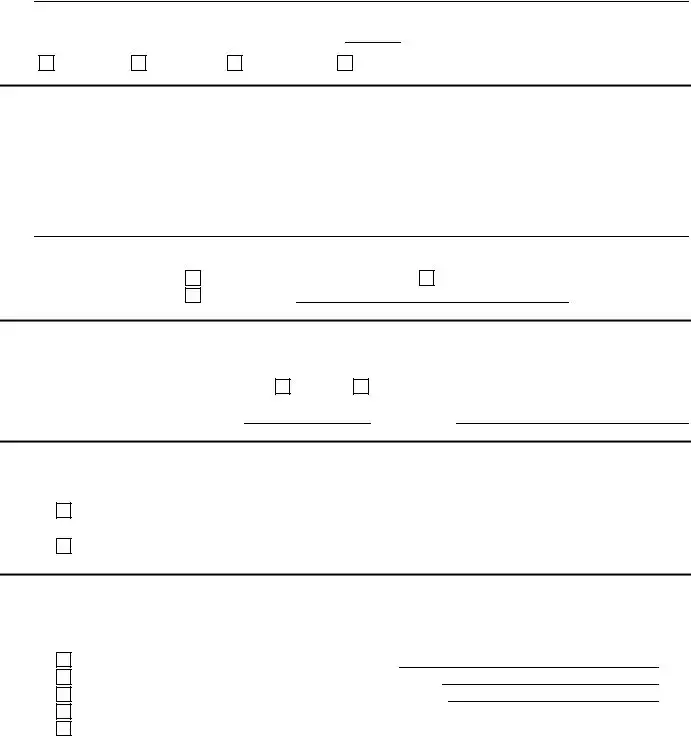W-1130 |
STATE OF CONNECTICUT |
(Rev. 2/07) |
DEPARTMENT OF SOCIAL SERVICES |
|
ACQUIRED BRAIN INJURY (ABI) WAIVER REQUEST FORM |
1.Personal Data
Name |
|
|
Social Security # |
|
Address |
|
|
|
|
|
No. |
Street |
|
Apt. No. |
|
|
City |
|
|
Telephone ( |
) |
|
Age |
|
|
|
|
|
Single |
Married |
Widowed |
State |
|
Zip Code |
Date of Birth |
|
⁄ |
⁄ |
(month) |
(day) |
(year) |
Divorced |
|
|
Contact person if other than yourself:
Name |
|
Telephone |
( |
) |
Address |
|
|
|
|
|
No. |
Street |
|
Apt. No. |
City
Relationship
(check all that apply)
State
Conservator of Person
Other (specify)
Zip Code
Conservator of Estate
Do you have an acquired brain injury?
If Yes, please indicate date of injury |
⁄ |
3.Freedom of Choice - Please read the following and check the box that indicates your choice
If possible, I would prefer to live in the community rather than a nursing home or other institutional setting.
I would prefer to live in a nursing home or other similar setting.
4.Medicaid (Title 19) and Medicare Information
Please check the blocks that apply to you:
I am receiving Medicare benefits (enter claim number)
I am receiving Medicaid/Title 19 benefits (enter case number)
I have a Medicaid "Spenddown" (enter case number, if known)
I have applied for Medicaid benefits but have not received a decision
I have not applied for Medicaid benefits
THIS INFORMATION IS AVAILABLE IN ALTERNATE FORMATS. PHONE (800) 842-1508 OR TDD/TTY
(800) 842-4524.
5.Financial Data
My total monthly income (for example, Social Security, SSI, disability benefits, pension benefits, Workers Compensation, wages, contributions, income from interest or dividends, etc.) is:
My total assets (for example, cash, bank accounts, IRAs, life insurance, annuities, stocks, bonds, motor vehicles, property, etc.)
Signature of Applicant |
Date |
Signature of Conservator or Other Representative |
Date |
Typed or Printed Name of Conservator or Other Representative |
Date |
Return This Form To:
Department of Social Services
25 Sigourney Street
Hartford, CT 06106-5033
Attention: Social Work Services
10th Floor

